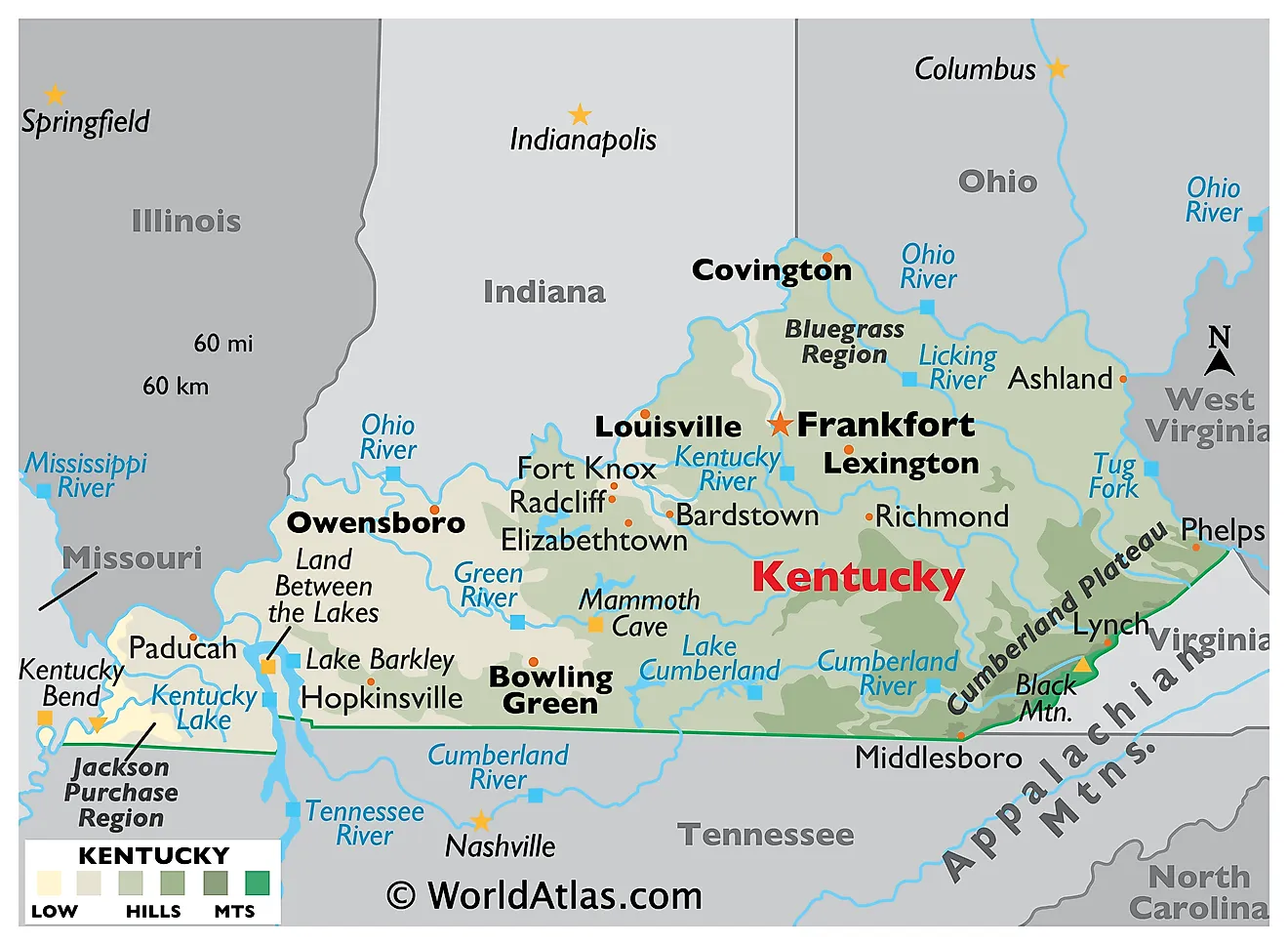Many folks, you know, often wonder about the political leanings of states they don't know well. It's a common thought, isn't it? When you hear about a place like Kentucky, a state known for its unique culture and storied past, a question might just pop into your mind: is Kentucky liberal or Republican? This question, it seems, gets asked quite a bit, and for good reason. The political landscape of any state, after all, tells you a lot about its people and what matters to them.
Kentucky, a constituent state of the United States of America, has a rich history. Previously part of colonial Virginia, it was admitted into the Union as the fifteenth state on June 1, 1792. It is known as the Bluegrass State, a name that comes from the Kentucky bluegrass, which is, you know, quite a distinctive feature. This state, with its deep roots, offers a blend of tradition and a rather evolving identity, and its political heart is, in a way, a reflection of that mix.
So, understanding Kentucky's political identity isn't as simple as just picking one side or the other. It's a bit more nuanced, you see. We'll explore some of the factors that shape the political character of this fascinating state, looking at its history, its geography, and even some of the things it's famous for, like the Kentucky Derby or the delicious KFC. It's really about getting a feel for the place, isn't it?
Table of Contents
- Understanding Kentucky's Political Identity
- Frequently Asked Questions About Kentucky Politics
- Exploring Kentucky's Future Political Path
Understanding Kentucky's Political Identity
When you think about the question, "Is Kentucky liberal or Republican?", it's, like, a really interesting one. Most people, if they had to guess, would probably lean towards one side. But the truth is, a state's political identity is rarely, if ever, just one thing. It's a bit like a complex recipe, with many different ingredients coming together to create the overall flavor. Kentucky, as a state, has a very distinct personality, and its political leanings are, in some respects, just as unique. We can look at various aspects to get a clearer picture.
Historical Roots and Political Shifts
Kentucky, as we know, became a state in 1792, after being part of colonial Virginia. This early history, you know, really set a foundation for its identity. For a very long time, stretching through much of the 20th century, Kentucky was, in a way, considered a reliably Democratic state, especially at the local level. This was a common trend in many Southern states, where the Democratic Party, believe it or not, held a very different kind of appeal than it does today. It was, apparently, more aligned with agrarian interests and, in a sense, traditional values.
However, over the last few decades, there has been a significant shift. This change, you see, isn't unique to Kentucky; it's something that has happened across much of the American South. The Republican Party has, very much, gained considerable ground. This transformation has been, quite frankly, a major topic of discussion for political observers. What was once a largely Democratic stronghold, especially in federal elections, has, more or less, become a place where Republican candidates often win by rather large margins. This shift, to be honest, reflects broader national trends and changes in party platforms.
So, while the historical roots might suggest one thing, the current reality is, in fact, quite different. It's a testament to how much political affiliations can, and do, change over time. The legacy of being a "Bluegrass State" with a deep past still remains, but the way people vote, it seems, has, quite literally, changed quite a bit. This ongoing evolution, you know, makes the state's political story a truly compelling one.
Geography and Demographics Shaping the Vote
Kentucky's geography plays a pretty big role in its political makeup, too. The state is bordered by Illinois, Indiana, and Ohio to the north, and West Virginia and Virginia to the east. Indiana and Ohio border it to the north, West Virginia to the northeast, Virginia to the east. These surrounding states, in a way, influence Kentucky's own character. You'll find different kinds of communities across the state, from more urban centers to vast rural areas, and each of these places, quite naturally, has its own particular leanings.
Demographics, as a matter of fact, are a huge part of the puzzle. Generally speaking, in Kentucky, as in many other states, rural areas tend to vote more Republican. These communities, often centered around agriculture or smaller industries, have, you know, different priorities and concerns than those living in larger cities. The values and economic situations in these areas often align more with the Republican platform, it seems.
On the other hand, the more populated areas, the cities and their immediate suburbs, tend to be, like, a bit more liberal or Democratic. Places like Louisville or Lexington, for instance, are often considered Democratic strongholds within the state. These areas typically have a more diverse population, a wider range of industries, and, generally, a different set of social and economic issues that resonate with a more liberal viewpoint. So, it's not just one uniform political color across the entire state; there are, you know, clear pockets of differing opinions.
The Rural-Urban Divide: A Common Story
The split between rural and urban areas is, basically, a really common theme in American politics, and Kentucky is, in fact, no exception. The vast stretches of the state, the parts that truly embody the "Bluegrass State" image with its rolling hills and farms, are typically very conservative. People in these areas, you know, often prioritize issues like gun rights, lower taxes, and a less intrusive government. Their daily lives and community structures often lead to a strong sense of self-reliance and traditional values, which, you know, often aligns with the Republican Party.
Conversely, the larger cities in Kentucky, like Louisville and Lexington, as I was saying, paint a different picture. These urban centers, with their diverse populations and bustling economies, tend to be more progressive. They often focus on issues like social justice, environmental protection, and public services. The younger generations, too it's almost, often gravitate towards these urban areas, bringing with them a more liberal outlook. This divide is, in a way, a microcosm of the national political landscape, played out within the borders of Kentucky.
So, when someone asks, "Is Kentucky liberal or Republican?", the most honest answer is that it's, well, both, depending on where you look. The state as a whole may lean Republican in statewide and federal elections, but the vibrant, diverse urban centers definitely have a strong liberal presence. It's a pretty clear example of how geographical distribution of people and their differing ways of life can, you know, really shape a state's political identity.
Cultural Influences and Political Leanings
Kentucky is known for so many things, from KFC to the Kentucky Derby and so much more. These cultural touchstones, in a way, also play a subtle role in the state's political identity. For example, the famous Kentucky Bourbon Trail, which attracts so many visitors looking for unforgettable experiences, is a symbol of tradition and craftsmanship. This appreciation for heritage and long-standing practices can, sometimes, go hand-in-hand with more conservative viewpoints.
The Kentucky Derby, too, is a grand event, a celebration of sport and tradition that brings people together. Such events often reflect a sense of community and shared values that can be, in some respects, quite conservative. It's not that liking bourbon or horse racing makes you Republican, not at all, but the underlying cultural values that foster these traditions can, you know, often align with certain political philosophies.
Then there's the strong agricultural heritage. Kentucky is known as the Bluegrass State, a reference to the Kentucky bluegrass. This connection to the land and to farming, you know, often fosters a certain independence and a desire for less government interference, which, basically, are tenets often found in Republican platforms. So, while you're exploring the beauty of Kentucky, from outdoor adventures to cultural wonders, discover unforgettable experiences in the Bluegrass State, you're also seeing elements that contribute to its overall political character.
State-Level Politics and Local Flavor
It's really interesting to look at how state-level politics in Kentucky can, sometimes, present a slightly different picture than federal elections. While the state consistently votes Republican in presidential races, and its congressional delegation is, generally, heavily Republican, there have been times when Democrats have held key statewide offices, like the governorship. This, you know, suggests that voters are willing to split their tickets, choosing candidates based on individual merit or specific issues rather than strictly along party lines for all offices.
For instance, the latest news, updates, and happenings from around the state often highlight the back-and-forth nature of legislative debates. Even in a state that leans Republican, there are, you know, lively discussions and disagreements on policy. This shows that the political landscape isn't, like, a monolith. There are, apparently, different factions and viewpoints even within the dominant party, and opposition parties still play a very important role in shaping the conversation.
Local elections, too, can be, you know, quite different. In many towns and counties, especially in the more rural parts, local races might be decided more on personal connections and community standing than on strict party affiliation. However, in the larger cities, party labels often carry more weight. So, when you're looking for a government agency or checking out the things Kentucky is known for, it's worth remembering that the political dynamics can, actually, vary quite a bit depending on the level of government and the specific location within the state. For more details on official election data, you might want to check a reputable political analysis site, which is an external link for further reference.
Frequently Asked Questions About Kentucky Politics
People often have, you know, a few common questions when it comes to understanding Kentucky's political landscape. It's, like, a natural curiosity, isn't it? Here are some of the things folks often ask.
What political party is dominant in Kentucky?
Generally speaking, the Republican Party holds a dominant position in Kentucky, especially in statewide and federal elections. This has been a trend for, you know, quite some time now. Most of the state's representation in the U.S. Congress, for example, is Republican, and the state has voted for Republican presidential candidates in recent elections. However, as I was saying, there can be, you know, nuances at the local level and even with some statewide offices.
Are there liberal areas in Kentucky?
Absolutely, yes! While the state as a whole leans conservative, there are definitely liberal areas within Kentucky. The most prominent examples are the larger urban centers, like Louisville and Lexington. These cities and their surrounding areas tend to have a more diverse population and, you know, often vote for Democratic candidates. They are, in a way, pockets of more progressive thought within the broader conservative landscape.
Why did Kentucky shift from Democratic to Republican?
The shift in Kentucky from being a traditionally Democratic state to a predominantly Republican one is, in fact, a complex story, very similar to what happened across much of the American South. Several factors contributed to this change. For one, the national Democratic Party's platform evolved over the latter half of the 20th century, becoming, you know, more aligned with social liberalism and urban interests. This, apparently, led to a disconnect with many rural, culturally conservative voters in Kentucky who had, historically, voted Democratic but felt the party no longer represented their values. Issues like gun control, abortion, and the economy also played a significant role, pushing many voters towards the Republican Party, which, in a way, seemed to better reflect their views.
Exploring Kentucky's Future Political Path
Looking ahead, the political path of Kentucky is, you know, always an interesting thing to consider. While the state has shown a strong preference for Republican candidates in many recent elections, the presence of vibrant urban centers with different political leanings means the conversation is, apparently, never truly settled. The balance between tradition and progress, between rural and urban concerns, will continue to shape how people vote and what issues they prioritize.
Whether you're on the hunt for the famous Kentucky Bourbon Trail or ready to forge your own path, understanding the state's political heartbeat adds another layer to its charm. It's a place where history meets the present, and where diverse viewpoints, you know, contribute to a truly unique identity. To learn more about on our site, you can explore many fascinating aspects of this state. And to find even more about the rich cultural and natural attractions, link to this page for more insights.



Detail Author:
- Name : Prof. Jovan Krajcik
- Username : matt.schamberger
- Email : mckayla28@gmail.com
- Birthdate : 1974-08-27
- Address : 7410 Manuel Mountain Apt. 744 East Magdalena, MO 51350-1966
- Phone : 1-769-388-3747
- Company : Goyette-Keebler
- Job : Ticket Agent
- Bio : Optio distinctio animi rerum. Unde id assumenda qui.
Socials
twitter:
- url : https://twitter.com/ctrantow
- username : ctrantow
- bio : Rerum odit necessitatibus asperiores voluptatem non excepturi. Neque excepturi non numquam ea aut ullam laboriosam. Non laborum rerum officiis ut eius.
- followers : 2980
- following : 2302
facebook:
- url : https://facebook.com/cicero5839
- username : cicero5839
- bio : Ut sit dolores est facere rem natus odit.
- followers : 3830
- following : 2523

